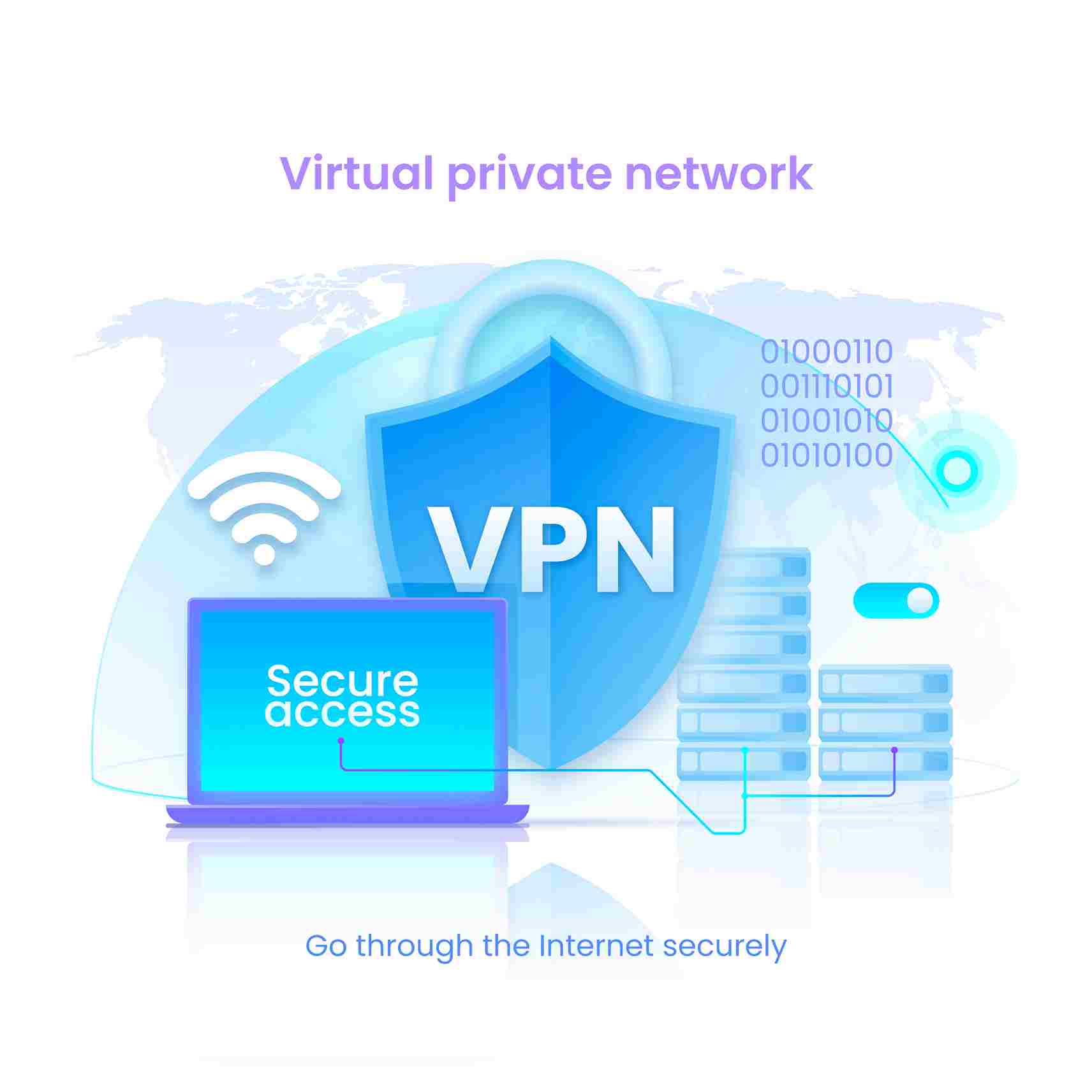What is VPN? How It Works, Types of VPN
A VPN, or virtual private network, is a service that allows you to connect to the internet securely and privately. A VPN encrypts your data and routes it through a server in another location, making it appear as if you are browsing from that location. This can help you access geo-restricted content, protect your online privacy, and avoid censorship and surveillance.
A VPN, or virtual private network, is a technology that creates a secure and encrypted connection between your device and a server on the internet. A VPN allows you to access online services and websites that may be blocked or restricted in your country or region, or to protect your privacy and security when using public Wi-Fi networks.
How does a VPN work?
When you connect to a VPN, your device sends and receives data through an encrypted tunnel that connects you to the VPN server. The VPN server then acts as an intermediary between you and the internet, masking your IP address and location, and routing your traffic to the desired destination. This way, you can bypass geo-restrictions, censorship, and firewalls that may prevent you from accessing certain websites or services. Additionally, a VPN can prevent your internet service provider (ISP), government, hackers, or other third parties from spying on your online activities or stealing your personal information.
Types of VPN
There are different types of VPNs that offer different levels of security, speed, and functionality. Some of the most common types are:
- PPTP (Point-to-Point Tunneling Protocol): This is one of the oldest and fastest VPN protocols, but also one of the least secure. It is easy to set up and compatible with most devices, but it can be easily blocked or hacked.
- L2TP/IPsec (Layer 2 Tunneling Protocol/Internet Protocol Security): This is a more secure and reliable VPN protocol than PPTP, but also slower and more complex. It uses two layers of encryption and authentication to ensure data integrity and confidentiality.
- OpenVPN: This is an open-source and highly customizable VPN protocol that offers a good balance between security and speed. It uses strong encryption and supports various features such as split tunneling, kill switch, and port forwarding. However, it requires additional software installation and configuration on some devices.
- IKEv2/IPsec (Internet Key Exchange version 2/Internet Protocol Security): This is a modern and robust VPN protocol that offers high security and performance. It is especially suitable for mobile devices as it can quickly reconnect after network interruptions. However, it may not work well with some firewalls or routers.
- WireGuard: This is a new and innovative VPN protocol that promises to be faster, simpler, and more secure than the existing ones. It uses state-of-the-art cryptography and a lightweight code base to achieve high efficiency and reliability. However, it is still under development and may not be compatible with all platforms or services.
Conclusion
A VPN is a useful tool that can enhance your online experience by allowing you to access blocked or restricted content, protect your privacy and security, and enjoy faster and smoother internet connections. However, not all VPNs are created equal, so you should choose one that suits your needs and preferences. You should also be aware of the potential risks and limitations of using a VPN, such as legal issues, bandwidth caps, logging policies, or compatibility issues.
Share This Post
Related Articles
Cybersecurity Essentials: What Every Business Leader Must Know
Protecting your business in the digital age is crucial! Discover the cybersecurity essentials every leader should know for a secure and thriving enterprise.
Common Cybersecurity Issues That Organizations Face
In today's interconnected digital landscape, cybersecurity has become paramount for businesses of all sizes. As technology advances, so do the tactics of cybercriminals. Organizations must be vigilant and proactive in safeguarding their sensitive information and digital assets. In this article, we'll delve into the common cybersecurity issues that organizations face, exploring their implications and suggesting strategies to mitigate these threats.
What is Social Engineering in Cyber Security?
Social engineering is a form of cyberattack that exploits human psychology and behavior to manipulate, deceive, or coerce people into revealing sensitive information or taking actions that compromise their security. Social engineering techniques can include phishing, baiting, pretexting, quid pro quo, and tailgating, among others. Social engineering attacks can target individuals, organizations, or even entire societies, and can have serious consequences such as identity theft, financial loss, data breach, or physical harm.
Secure Your World: The Ultimate Guide to Security Awareness Training
Discover the power of Security Awareness Training: Implement comprehensive programs covering phishing attacks, removable media, passwords, physical security, and mobile device security. Safeguard your organization today!
Explaining Two-Factor Authentication (2FA): Strengthening Online Security
Discover the vital concept of Two-Factor Authentication (2FA) and its role in enhancing online security. Learn how 2FA works, its benefits, and its applications in modern digital environments.
Related FAQ
No related FAQ.
Say Hello
To Your Dream





